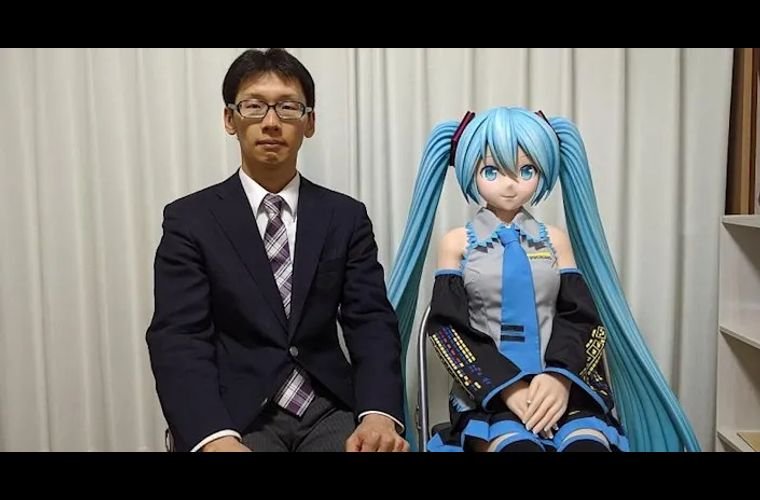“First comes love, then comes marriage,” or so the lyrics to the nursery rhyme go. However, a new addition to marriages in the 21st century appears to now be people who are choosing to wed virtual individuals.
These relationships are making headlines due to the recent wedding of a Japanese man named Akihiko Kondo and the virtual pop singer, Hatsune Miku. While the couple tied the knot back in 2018, only recently has Kondo opened up about his marriage, self-describing himself a “fictosexual.” This term may seem to only apply to a niche group, but thanks to Kondo’s efforts, it will be no surprise to see if others begin to come forward with similar experiences, giving rise to the popularity of fictosexuality.
Background: Defining FictosexualIty
While the term fictosexual seems relatively new, the idea behind it is quite old. Fictosexual is an umbrella term referring to an individual who is sexually attracted to a fictional character. Since the inception of writings individuals have experienced this process to a certain extent, for example, many Russians self-proclaimed to be in love with Natasha Rostova, the heroine of War and Peace.
Even today, characters such as Mr. Darcy from Pride and Prejudice or Elvira will arouse sexual attraction from individuals. While the term fictosexual may give some people pause, a paper from the National Institute of Health has said that this group is part of the LGBTQIA+ community, as most fictosexuals would also consider themselves asexual. But what are the psychological drives behind fictosexuality, and why do people, like Kondo, go to great lengths to act on these attractions?
Analysis: No Rejections
According to Kondo, his virtual wife Miku will “always be there for him, never betray him, and he’ll never have to see her get ill or die.” The fact that fictional characters are one-sided and incapable of rejection is an appealing option to many individuals. For individuals scared to be rejected by others, having a partner who can’t reject them seems irresistible. It’s a very similar reason why some individuals are necrophiles, being in love with corpses who can’t reject them. The lack of rejection makes individuals feel more confident and secure in these relationships.
There are a few other reasons why fictosexual relationship might be appealing. According to a researcher at the University of Paris Nanterre, Agnès Giard, fictosexual marriages may be attractive for women because they’re “a way to challenge gender, matrimonial, and social norms.” The personal freedom of connecting with a fictional character may drive some people to these types of relationships, as they don’t have to deal with toxic individuals or messy breakups. For people who may have been seriously hurt in previous relationships, a fictosexual relationship may seem like a relief. For these reasons and more, many individuals go to great lengths to be with their fictional loves, such as Kondo did by spending around $15,000 to marry Miku.
Outlook: Misunderstandings
Unfortunately for Kondo, his virtual marriage to Miku would not last, as the virtual reality platform discontinued her character. This may be due to what Giard describes as a misunderstanding of fictosexuals. “To the general public, it seems foolish to spend money, time, and energy on someone who is not even alive. But for character lovers, this practice is seen as essential. It makes them feel alive, happy, useful, and part of a movement with higher goals in life.”
While people may understandably remain skeptical about fictosexuality, the group is nonetheless gaining more recognition today thanks to Kondo. They even have their own flag, uniting like-minded individuals to the common cause of professing love for characters who, at least in our reality, have never really existed.
Kenna Castleberry is a staff writer at the Debrief and the Science Communicator at JILA (a partnership between the University of Colorado Boulder and NIST). She focuses on deep tech, the metaverse, and quantum technology. You can find more of her work at her website: https://kennacastleberry.com/

